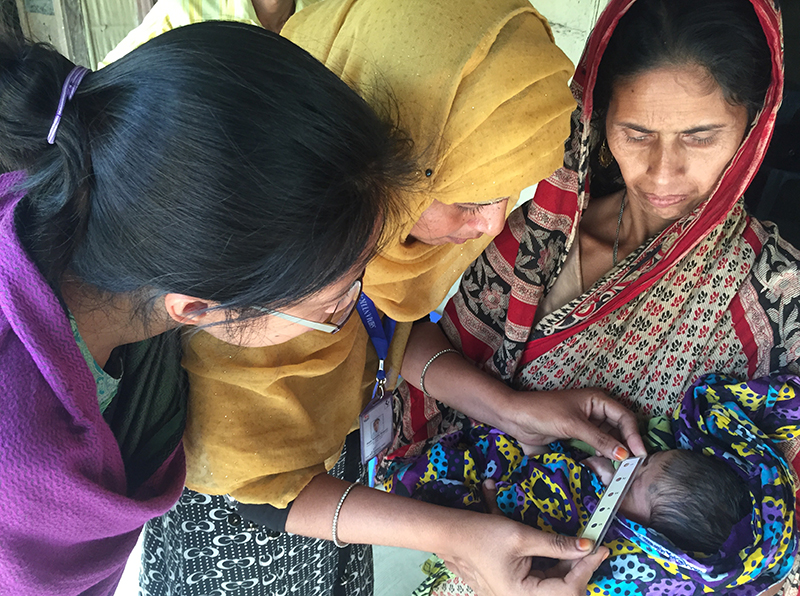 Hyperbilirubinemia, more commonly known as jaundice, occurs because of increased serum bilirubin concentrations from excessive red blood cell breakdown after birth. If diagnosed early, jaundice is treatable with phototherapy and has no long-term effects on health. However, if diagnosed or treated too late, it can cause devastating brain injury, lifelong impairment and death. Approximately 1.1 million newborns around the world are diagnosed with severe jaundice each year, and over 114,000 babies die from jaundice-related complications.
Hyperbilirubinemia, more commonly known as jaundice, occurs because of increased serum bilirubin concentrations from excessive red blood cell breakdown after birth. If diagnosed early, jaundice is treatable with phototherapy and has no long-term effects on health. However, if diagnosed or treated too late, it can cause devastating brain injury, lifelong impairment and death. Approximately 1.1 million newborns around the world are diagnosed with severe jaundice each year, and over 114,000 babies die from jaundice-related complications.
The Bili-ruler is a non-invasive, low-tech, easy-to-use screening tool for newborn jaundice that was developed by Dr. Lee using advanced digital image processing and human-centered design. The Bili-ruler is used by a healthcare provider to compare colors on the ruler to the color of a baby’s blanched skin; the health provider then chooses the closest color match. The Bili-ruler can help determine the level of risk for the baby and identify those who may need further evaluation and management for jaundice. This type of low-tech screening option is important in settings where trained healthcare workers, screening tools, and/or lab testing are not readily available.
We conducted validation testing of the Bili-ruler on 798 babies at Brigham and Women’s Hospital (Boston, MA, USA) and Sylhet Osmani Medical College (Sylhet, Bangladesh). Results showed a strong correlation between Bili-ruler measurements and transcutaneous bilirubin concentrations across both populations. The Bili-ruler had high diagnostic accuracy to identify different clinical thresholds of neonatal hyperbilirubinemia.
The Bili-ruler is also currently being studied by other investigators in various settings including Ghana, India, Pakistan, Kenya, Zambia and Peru.
Little Sparrows Technologies is working to manufacture and bring the Bili-ruler to scale for the populations who need it most. The Bili-ruler is also being delivered in a package (called the bili-kitTM) with a portable phototherapy device, the bili-hutTM.